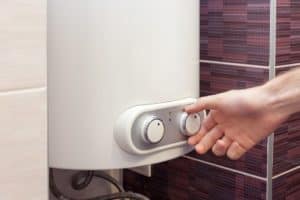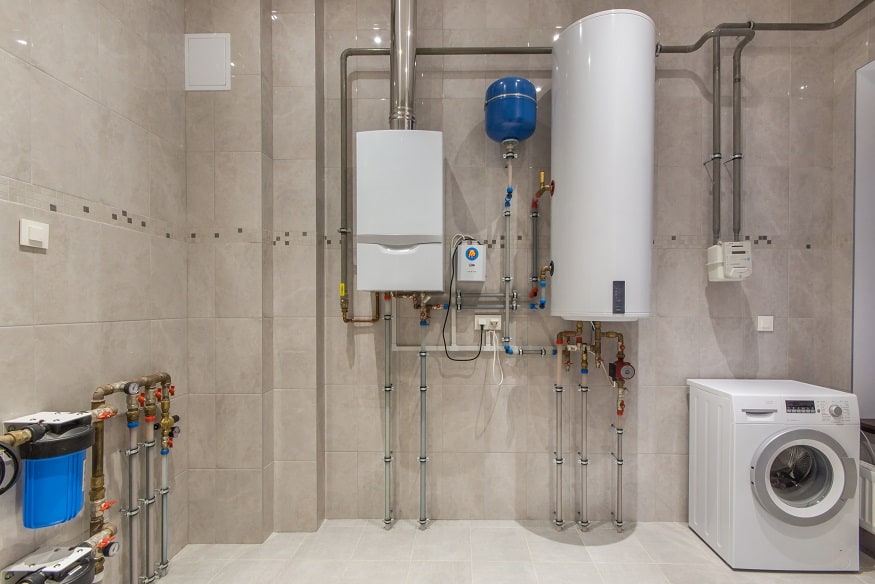Water heating is a process of increasing the water’s temperature for homeowners who need hot or warm water for bathing, washing, and other uses. Traditionally, water is heated through the use of a kettle or cauldron. Today, people heat water with the help of more efficient and convenient home water heater systems.
If you’re still planning to install a hot water system in your household, you might want to read on below to know what the experts have to say in terms of efficiency and how to choose the right type of hot water system for your home.

- Fuel Source Affects Performance
Typically, home hot water systems are powered by electricity or gas. If you’d look for water heaters in the market, electricity-powered types are the most widely available one. Electricity-powered water heaters are more efficient and are quicker in terms of heating time and recovery. Aside from that, they are generally safer.
On the contrary, gas-powered water heaters are the fastest when it comes to heating time. Generally, these types also have lower utility costs. Yet installing this type is usually more challenging and it requires a higher level of maintenance than their electric-powered counterparts. In this case, homeowners may need a professional to help them with gas hot water heater troubleshooting and other issues.
- Each Type Of Hot Water Systems Has Its Pros And Cons
Apart from the fuel source, the performance of a home water system depends on its type. Generally, there are five types of water systems that a homeowner could choose from. These are:
- Heat Pumps: This type is electricity-powered but only consumes about 60% of electricity because it also uses ground heat
- Conventional: This contains a tank where a specific volume of water is heated. Frequent cleaning is necessary to remove residues and maintain water quality.
- Tankless: Uses super-heated coils instead of storage tanks.
- Solar-Powered: From its name, this type is powered by solar panels, and the energy is transferred to a heat-conductive material that increases the water’s temperature.
- Condenser: This is ideal for water heater systems that use natural gas and relies on gas fumes for heat production
- Energy Rating Could Tell More About A Heater’s Efficiency
Assuming that all other properties are equal, a home water system’s efficiency could depend on its energy-saving properties. Seasoned water heater users rely on the energy ratings often attached to the water heaters when they’re newly bought. The ratings usually tell the approximate energy consumption of the heater.
This expected consumption may change in the long run because of natural wear and tear and other problems. To have an excellent comparison, homeowners who are about to install their heaters could read reviews apart from the ratings.
- Tank Or Tankless? Whatever Fits Your Needs
Tankless water heaters are earning their spot in some homes. Homeowners prefer this heater because it maximizes space. In addition, tankless heaters are known to reduce energy consumption up to 30% in most of their models. However, tankless heaters aren’t ideal for households with many people. More often, the water in tankless heaters is used and released one at a time, making it impossible for multiple individuals to use it all at once.
On the contrary, some homeowners choose heaters with a tank to heat water. One good feature of this heater is its continuous heating. This way, there’ll be no need to wait for a longer time to have hot or warm water. Consequently, however, this type consumes more fuel or energy because it continuously heats the tank—whether it has enough water or not.
- Assess Your Space Before Installation
Water heaters, especially the models with tanks, will need space. If a residence has limited space, tankless tanks would be more appropriate. For homes with wide roofing, solar-powered heaters could be an excellent option.
For homes with average sizes, homeowners may need to measure the spaces where they plan to install the water heater so that fitting them wouldn’t be a problem. Generally, average-sized houses can choose between gas and electric water heaters.
Wrapping Up
Home water systems had evolved since the days when cauldron and pots were used for boiling water. With these advanced types, homeowners could heat water almost instantly. These heaters help many homeowners as hot water is useful in cooking, bathing, washing, and doing the laundry.
This article talks about the insights that seasoned water heating users have in mind. You could take these points into consideration when deciding what model, type, and fuel source you’d use when choosing a heater that best fits your home.

Recent Comments